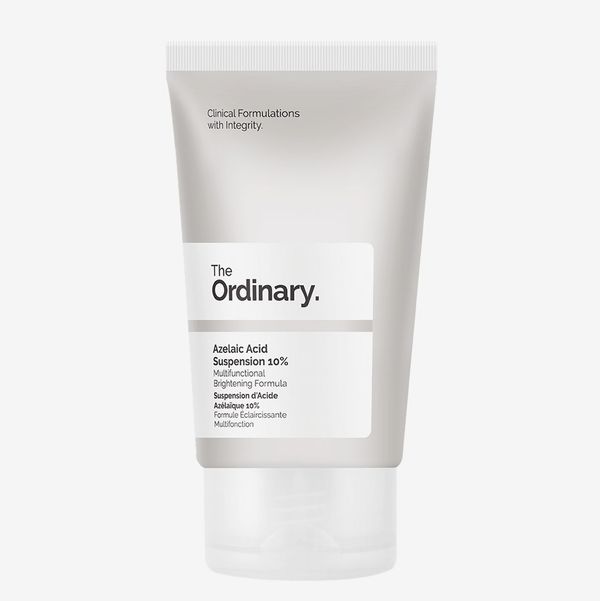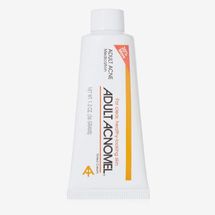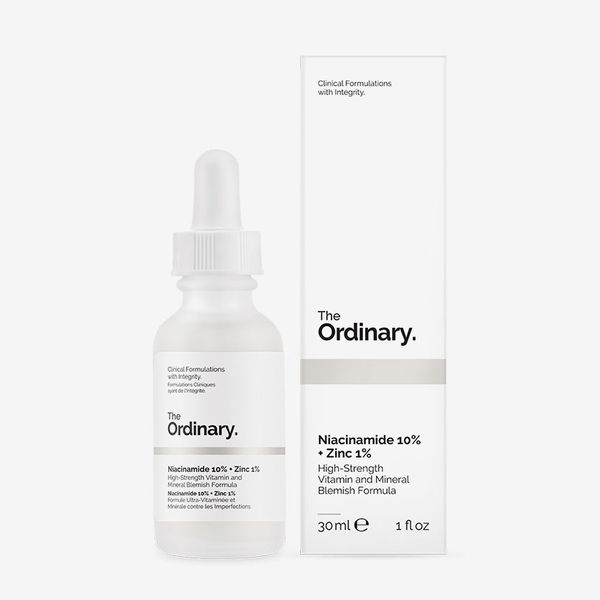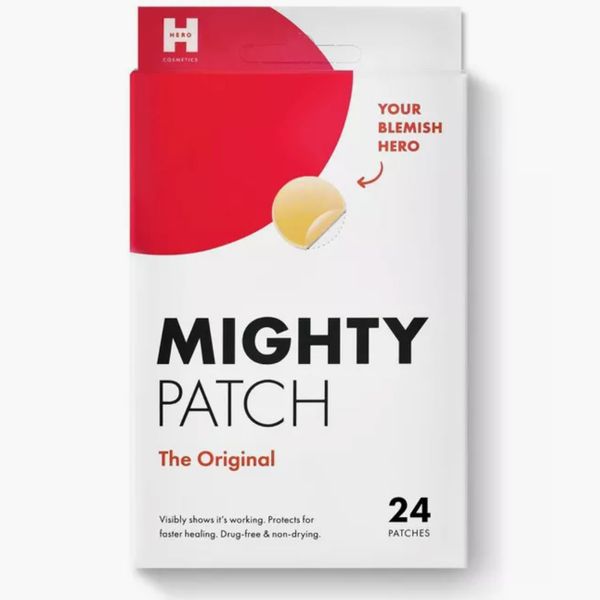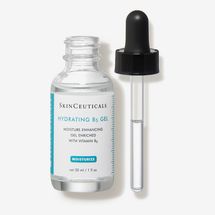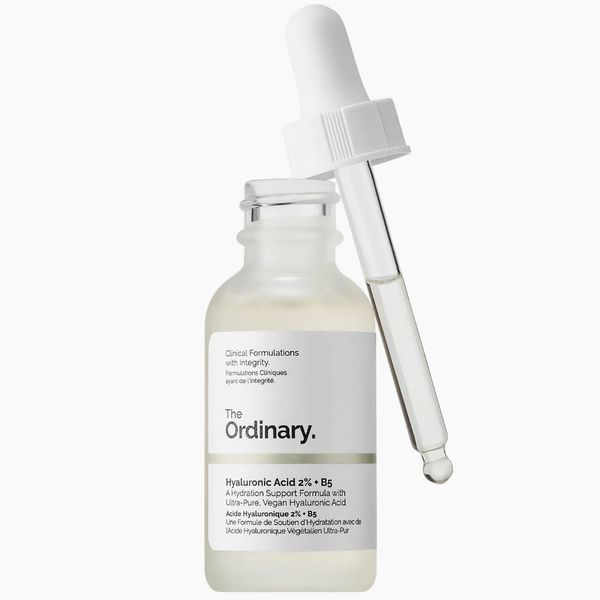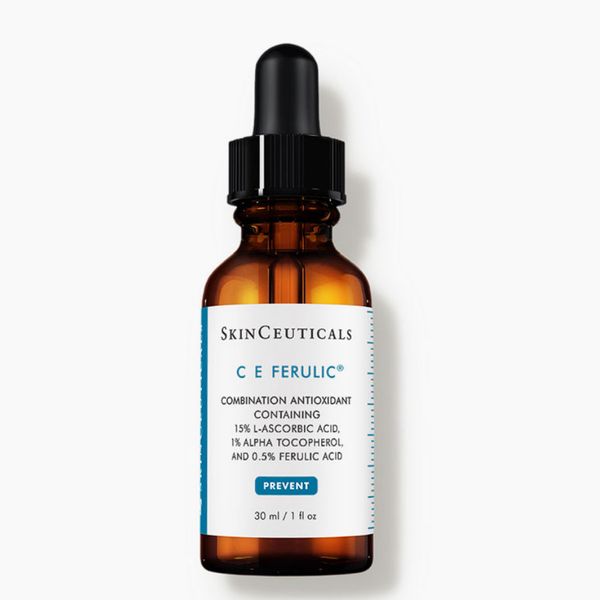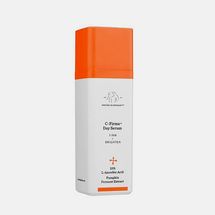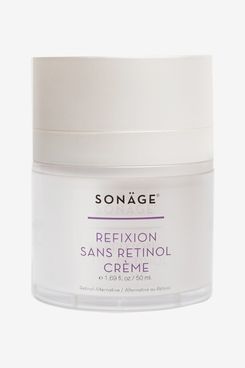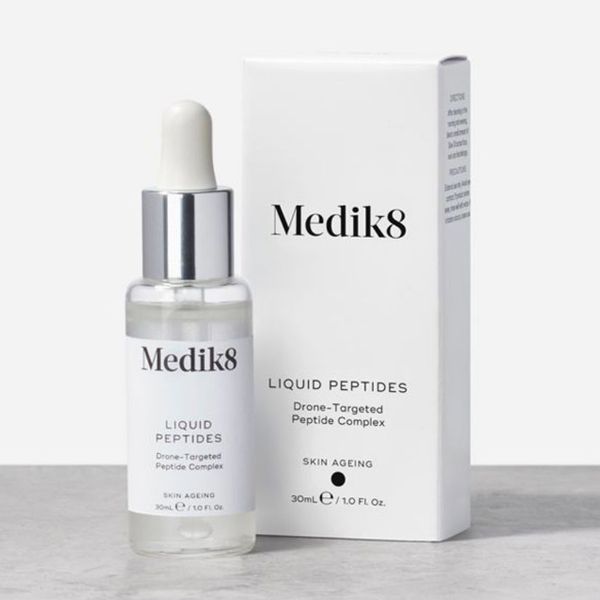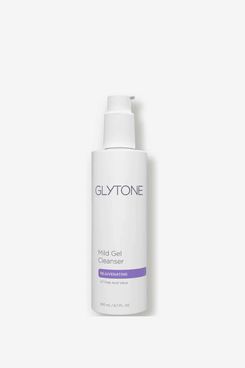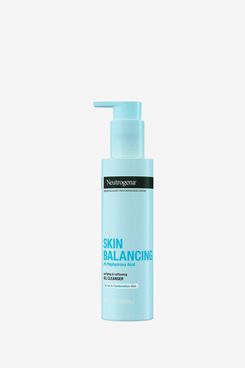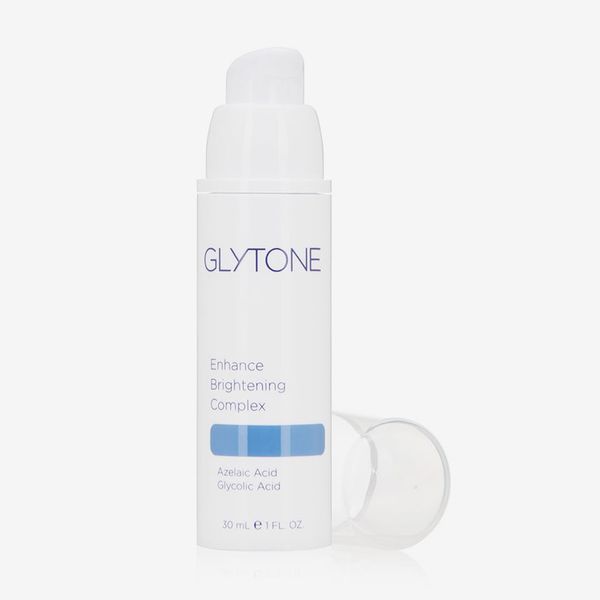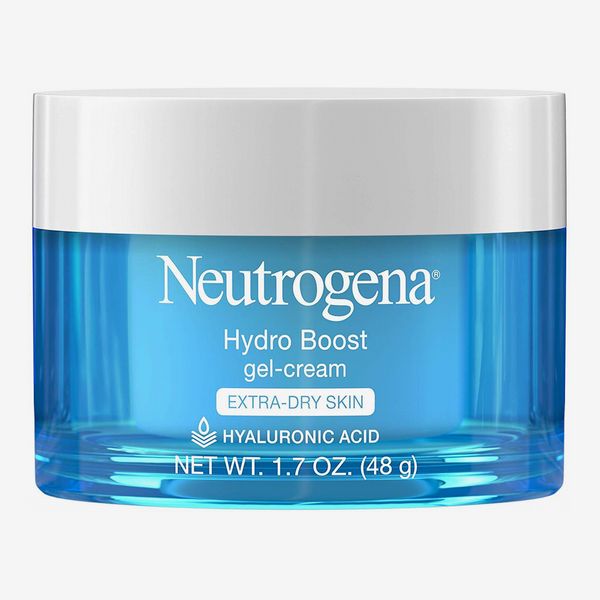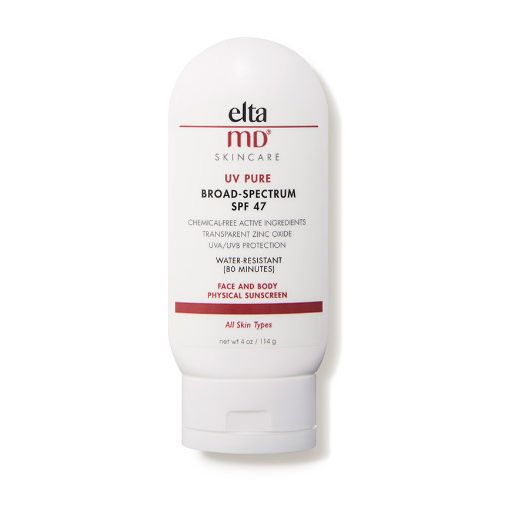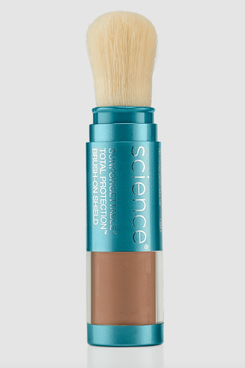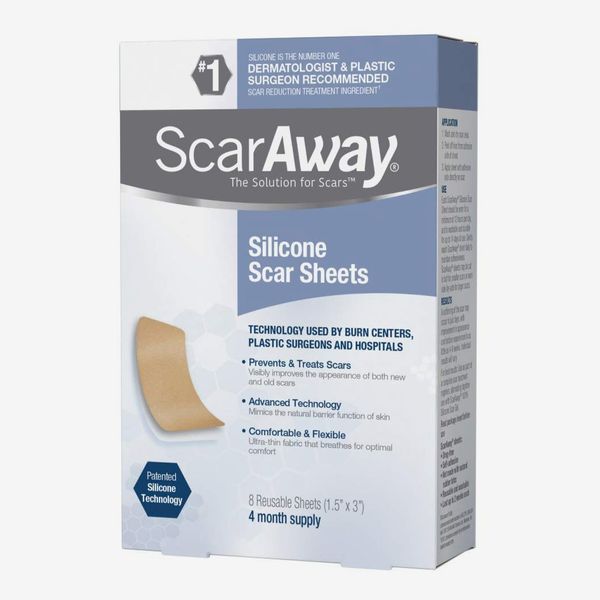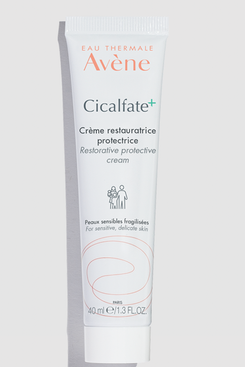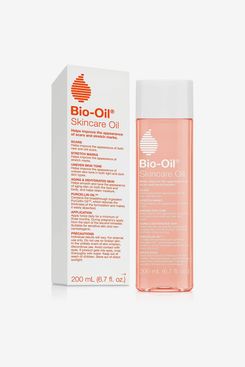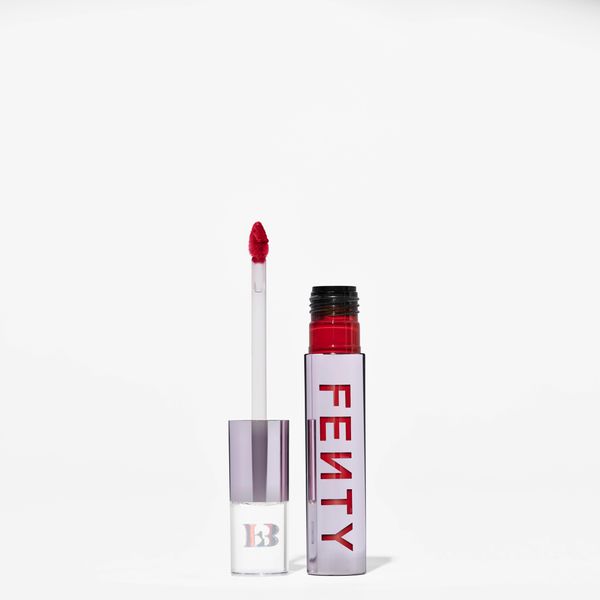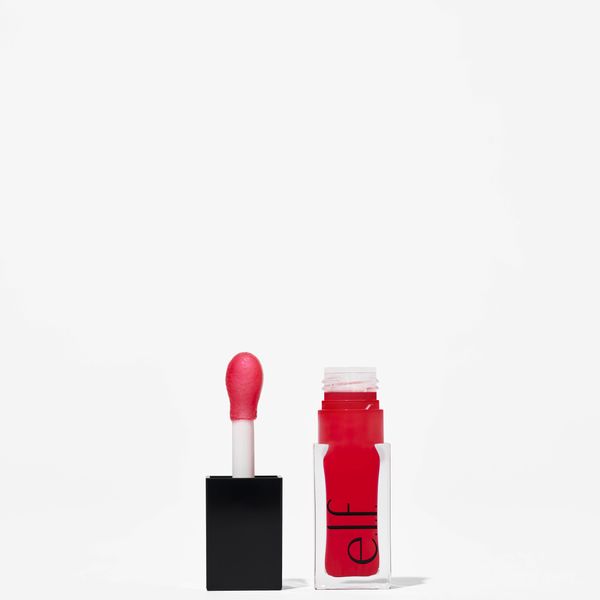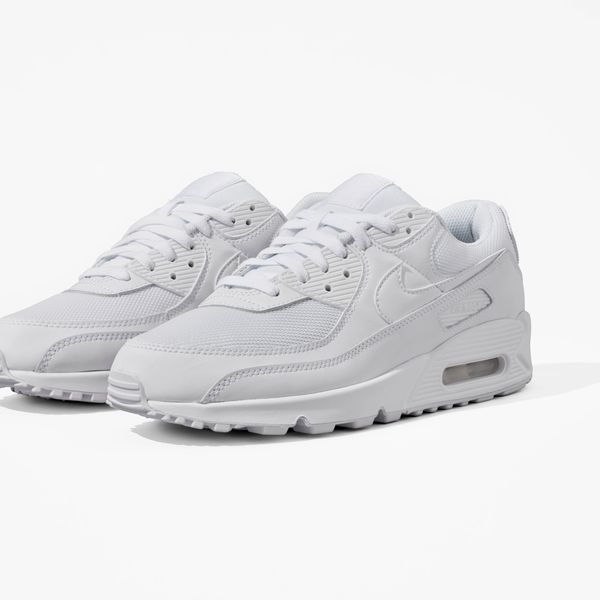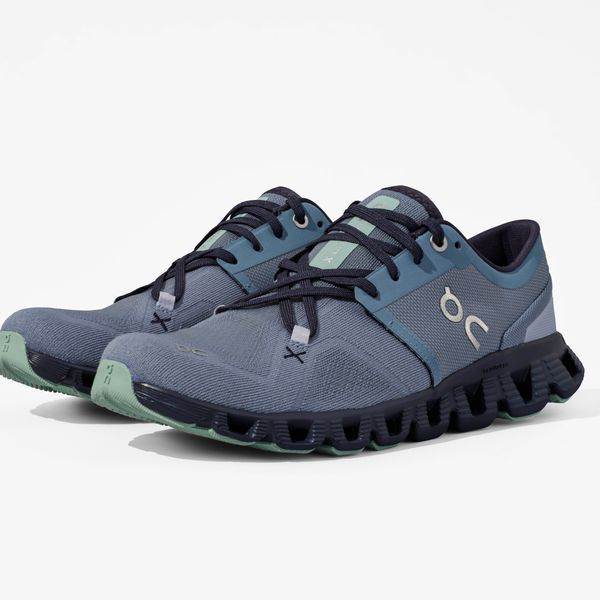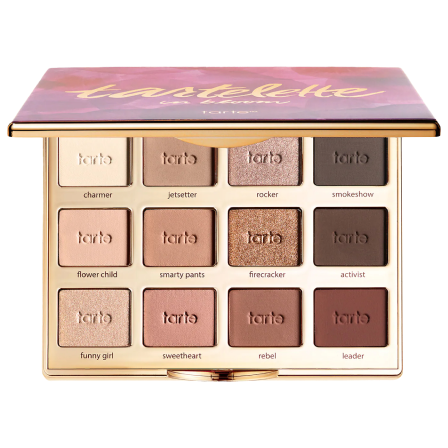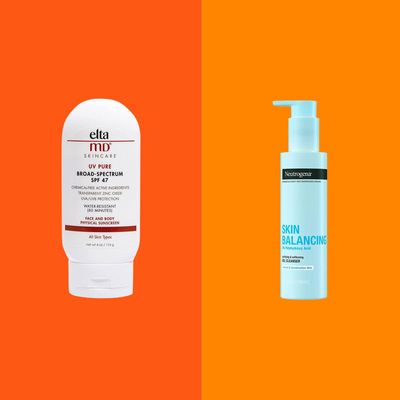
In this article
Just as you may be advised to avoid certain foods and activities during pregnancy, there might be steps in your skin-care routine that will need to be paused, too. That’s because certain skin-care ingredients — like prescription retinoids, over-the-counter retinols, hydroquinone, benzoyl peroxide, and salicylic acid, to name a few — are not safe during pregnancy, says Dr. Abigail Waldman of Mohs and Dermatologic Center at Brigham and Women’s Hospital.
This, understandably, can come as bad news to moms-to-be with acne and other skin conditions that pregnancy can often make even worse. What’s more, some of these ingredients should still be avoided even after giving birth — especially if you’re breastfeeding, since topicals like retinoids can be absorbed into the skin then excreted into breast milk or simply transferred to a baby’s skin upon contact. But the data on lactating mothers is limited, so it can be confusing to know exactly what is or isn’t safe to use while breastfeeding.
To help you navigate what is already a stressful time, I spoke to 14 dermatologists about what ingredients to absolutely avoid during pregnancy (and breastfeeding), alternative ingredients to look for, and the best products expectant mothers can use to tackle problems like acne, dry skin, dark spots, and more. But before using any, Dr. Jennifer MacGregor of Union Square Dermatology says that it’s best practice to “get a recommendation from your dermatologist and check with your OB before trying to conceive or as soon as you find out you are pregnant.” The same goes for once the baby has arrived: If you have any questions about the safety of any new product, speak to your doctor and pediatrician before trying it.
What we’re looking for
Active ingredients
Unfortunately, retinoids (and retinols), the vitamin A–derived ingredient that works wonders on both acne and fine lines by promoting skin-cell turnover, are considered unsafe to use during pregnancy. “Those molecules have pretty good data showing that they can affect embryo development in the first trimester,” says Dr. Abigail Waldman of Mohs and Dermatologic Center at Brigham and Women’s Hospital. “Even though most of the studies were done when the medication is taken orally, we believe that it is absolutely contraindicated to use any cream or lotion with those ingredients, at least during the first trimester. But I generally say avoid it during all of pregnancy.” If you’re planning on breastfeeding, the data is less clear, but the dermatologists I spoke to generally agree that it’s best to avoid oral or topical retinoids and retinols during lactation, too. According to Waldman, “There are no data studying it in lactating mothers and in breast milk, so it’s kind of one of those unknowns. I generally recommend not using it when breastfeeding.”
Instead, the dermatologists I spoke to recommend using milder acids like azelaic and glycolic, which are more gentle and generally safe. They also recommend vitamin C. Vitamin C is an effective ingredient that can also take the place of retinoids when it comes to treating dark spots and general skin-tone issues while pregnant or breastfeeding, according to Waldman and Dr. Michelle Park of Washington Square Dermatology. “Used in conjunction with sunscreen” — more on that below — “vitamin C not only has properties that boost collagen production and has a retinoid-like effect but also works as an antioxidant that helps fight sun damage,” Park explains.
Price point
In case price is a consideration, I’ve noted how much you’re getting with each product as well as the cost per ounce.
Best products to treat acne while pregnant (and nursing)
Best pregnancy-safe acne treatment overall
Active ingredients: Azelaic acid | Price point: 1 ounce ($11.10/ounce)
So how should pregnant women address acne if many go-to products contain retinoids and salicylic acids (another ingredient to avoid during pregnancy)? All eight of our experts recommend using azelaic acid, a topical also used to treat rosacea, that works by killing bacteria found in pores and decreasing the body’s production of keratin. Park says azelaic acid makes a fantastic substitute for retinols. “It’s my favorite topical acne treatment to use during pregnancy and breastfeeding,” she says. “It helps clear redness and acne, as well as decrease pigment production, so it helps with the dark marks that acne can leave behind.” MacGregor agrees, noting that “azelaic acid has a subtle brightening effect.” Although typically prescribed by doctors (under the name Finacea, for example), azelaic acid can be found over the counter, including in this creamy formula from The Ordinary that came specifically recommended by Park.
Best medicated cream to treat acne
Active ingredients: Resorcinol, sulfur | Price point: 1 ounce ($10/ounce)
In addition to azelaic acid, New York City–based dermatologist Dr. Cybele Fishman says that pregnant women can use “topical erythromycin (prescription) and all over-the-counter topical sulfur, zinc, and niacinamide treatments.” From the latter category of over-the-counter products, Fishman recommends the sulfur-based acne medication, Acnomel. (Park; Dr. Nava Greenfield of Brooklyn’s Schweiger Dermatology Group; and Dr. Yoon-Soo Cindy Bae, a clinical assistant professor at New York University who also works at the Laser and Skin Surgery Center of New York, also agree that sulfur-based products are safe to use to treat acne while pregnant or breastfeeding.)
Best serum to treat acne
Active ingredients: Niacinamide, zinc | Price point: 1 ounce ($6.50/ounce)
For a niacinamide treatment, Fishman recommends a treatment from The Ordinary. (Park; Dr. Nava Greenfield of Brooklyn’s Schweiger Dermatology Group; and Dr. Yoon-Soo Cindy Bae, a clinical assistant professor at New York University who also works at the Laser and Skin Surgery Center of New York, also agree that sulfur-based products are safe to use to treat acne while pregnant or breastfeeding.)
Best patches to treat acne
Active ingredients: Hydrocolloid | Price point: 36 patches ($0.25/patch)
These hydrocolloid patches from Hero Cosmetics are safe to use too, and are a favorite of dermatologist and founder of Tone Dermatology Dr. Caroline Robinson who says they promote post-blemish healing.
Best serums to use while pregnant (and nursing)
Best hydrating serum
Active ingredients: Hyaluronic acid, vitamin B5 | Price point: 1 ounce ($86/ounce)
Those who can get extremely dry skin know that sometimes a moisturizer alone won’t deliver all the hydration you need. In instances when “a topical moisturizer isn’t cutting it, you can use a hydrating serum in conjunction with the moisturizer,” Park says. For quenching super thirsty skin while pregnant or breastfeeding, she recommends SkinCeuticals’s Hyaluronic Acid Intensifier or the Hydrating B5 Gel (which also contains hyaluronic acid).
Best less-expensive hydrating serum
Active ingredients: Hyaluronic acid, vitamin B5 | Price point: 1 ounce ($7.50/ounce)
For a more affordable serum with hyaluronic acid to use on extra dry skin during pregnancy or while breastfeeding, Park recommends The Ordinary’s HA with B5 (another product that Rio also swears by).
Best serum for brightening dark spots
Active ingredients: Vitamin C, vitamin E, ferulic acid | Price point: 1 ounce ($169/ounce)
Dermatologist and mom of two Dr. Zena Willsmore invested in this vitamin-C serum when she had to pause her daily retinoid use while trying to conceive. She appreciates the “addition of vitamin E and ferulic acid in this serum” and its non-tacky texture. Park trusts this formula the most: “I always stick with Skinceuticals CE Ferulic acid for its efficacy and the research they have put into their product,” she says. And Bae also recommends Skinceuticals’ vitamin-C serum for hyperpigmentation, dark spots, and discoloration. And, to further support its worthiness, I should note that this took the title of best overall vitamin-C serum when I talked to dermatologists about their favorites.
Best less-expensive serum for brightening dark spots
Active ingredients: Ferulic acid, ascorbic acid | Price point: 1 ounce ($78/ounce)
Skinceuticals CE Ferulic may be prohibitively expensive if you’re trying to save money for all the other things you need for your newborn. But Park says, “For about half the price, you can try Drunk Elephant’s Vitamin C.” She adds that “The Ordinary also has a low-cost option.” (Maelove’s Glow Maker is another dermatologist-approved vitamin C serum that would make for a budget-friendly alternative to the one from Skinceuticals.)
Best anti-aging products to use while pregnant (and nursing)
Best serum for anti-aging
Ingredients: Bakuchiol, ceramides | Price point: 1.69 ounces ($35/ounce)
As the name suggests, this anti-aging product is also free of retinol. Instead, it’s packed with bakuchiol, an ingredient that board-certified dermatologist Dr. Nazanin Saedi names a great retinol alternative. “Like retinol, it also increases cell turnover, helps with collagen production, and reduces hyperpigmentation.” The cream also has skin-barrier-protecting ceramides and is noncomedogenic, so it shouldn’t clog up your pores or exacerbate patches of acne.
Active ingredients: Liquid peptides | Price points: 1 ounce ($62/ounce)
If you’re missing the anti-aging properties of retinol, peptides could be the next best thing, says consultant dermatologist and mother Dr. Justine Kluk. She says that peptides act as “messengers,” sending signals to the skin to produce more collagen or elastin. She layers on the “lightweight, nongreasy” Medik8 serum at night, after cleansing, noting that it’s easy to tolerate even on the more delicate skin near your eyes. “It’s also very hydrating, so I hardly ever needed to use a separate moisturizer afterwards.” Fellow dermatologist Dr. Adrienne O’Connell also recommends Medik8 Liquid Peptides to her pregnant patients and says that peptides are advisable to use for anyone, not just pregnant women.
Best cleansers to use while pregnant (and nursing)
Best cleanser overall
Active ingredients: Glycolic acid | Price point: 6.7 ounces ($5.40/ounce)
Cleansers can be effective for treating skin issues like acne and hyperpigmentation — you’ll just want to leave them on the skin for at least 60 seconds so actives like glycolic acid have time to interact with skin. While many acids need to be used sparingly during pregnancy, glycolic acid is relatively low-risk and thus safe for skin. Dermatologist Dr. Janklow Libby says a concentration of less than ten percent falls within the okay-to-use range, and helps to exfoliate, speed up cell turnover, and treat and prevent acne. Libby likes glycolic acids in face wash form, which she describes as “short contact therapy” — meaning it only spends a limited amount of time on the skin as opposed to a serum or moisturizer, which doesn’t wash off. Her favorite product for this is the Glytone Mild Cleanser. She recommends applying it in the shower and leaving it on for a minute or two before rinsing.
Best less-expensive cleanser
Active ingredients: Polyhydroxy acid | Price point: 6.3 ounces ($1.38/ounce)
PHAs (or polyhydroxy acid) are also safe to use. “PHAs are different from other acids like AHAs or BHAs because all skin types can benefit from them,” says Robinson. “They are both an exfoliant and a humectant so they leave the skin balanced and never stripped.” PHA molecules are also larger than AHAs and BHAs, so they don’t penetrate as deeply and tend to be less irritating. Robinson likes this cleanser from Neutrogena, which has a PHA concentration of two percent and a gel-texture consistency.
Best moisturizers to use while pregnant (and nursing)
Best overall moisturizer
Active ingredients: Glycolic acid | Price point: 1 ounce ($78/ounce)
AHAs and BHAs are both popular types of skin brighteners and exfoliants that can be found in moisturizers, but, according to MacGregor, “they disrupt the skin barrier and enhance penetration of other topicals, including untested substances.” She and another dermatologist we spoke to say its best to generally avoid moisturizers with AHAs and BHAs (which include salicylic acid) if pregnant or breastfeeding. But others, including Fishman and Dr. Shinjita Das at Massachusetts General Hospital, say there are some topical acids — including glycolic, lactic, malic, and mandelic — that are considered low-risk and okay to use (though Das warns to avoid letting a baby’s skin touch any areas where they may be applied). This moisturizing face cream, recommended by Park, contains azelaic acid and glycolic acid, both of which, she says, will “help with acne but also to even out skin tone.”
Best less-expensive moisturizer
Active ingredients: Hyaluronic acid | Price point: 1.7 ounces ($11.80/ounce)
“If you’re looking for a face moisturizer, I would recommend products that contain hyaluronic acid, which is incredibly hydrating and will plump the skin,” says Park, who adds that “hyaluronic acid is a natural substance found in our body’s tissues that’s naturally there anyway, so it’s not like introducing a foreign chemical.” (Other acids, however — including some alpha hydroxy acids/AHAs and beta hydroxy acids/BHAs — should either be avoided or used sparingly, according to most of the pros we talked to.) Neutrogena’s gel-cream is Park’s (and, incidentally, our beauty hobbyist Buzz Bissinger’s) go-to pick for an affordable moisturizer that gets the job done. Formulated with hyaluronic acid, she says “it has a lot of benefits, including moisturizing and fighting fine lines,” adding that “it’s just an overall great moisturizer.”
Best sunscreens to use while pregnant (and nursing)
Best SPF to use during pregnancy
Active ingredients: Zinc oxide | Price point: 4 ounces ($7.5/ounce)
In addition to using the above products, the dermatologists we spoke with also noted that keeping out of direct sunlight — or regularly using a mineral sunscreen (or a moisturizer with SPF) if you’re exposed to it — will help keep skin issues at bay while pregnant or breastfeeding. In fact, Greenfield told us that “strict sun avoidance” is one of the most important things you can do to prevent hyperpigmentation, dark spots, and discoloration. That means wearing “protective clothing, a hat, and a broad spectrum mineral/physical sunscreen such as EltaMD Pure.” The brand is generally beloved by derms (it took the top spot in our list of best sunscreens for face), and MacGregor notes that EltaMD’s tinted sunscreens with SPF 41 or SPF 44 are a good option if you’re looking for one that functions more like a tinted moisturizer. Park, dermatologist Dr. Arielle Nagler, and Waldman also stress using a mineral sunscreen (which typically contain zinc oxide and titanium dioxide as their main active ingredients) over a chemical one, as mineral formulations sit on the surface of skin to block UV rays, where chemical ones seep into skin and suck UV rays in before reflecting them.
Best tinted SPF to use during pregnancy
Ingredients: Zinc | Price point: 6 grams ($9.90/gram)
Sun protection is so important, in pregnancy and otherwise, for both health and cosmetic reasons. Sunscreen ultimately protects your skin from the rays that exacerbate dark spots and pigmentation — and Dr. Saedi notes that “women’s hormones tend to cause hyperpigmentation, especially with melasma.” So she recommends this brush-on mineral sunscreen, which you can reapply throughout the day (and over makeup, if you’re wearing any). Park, Nagler, and Waldman also stress using a mineral sunscreen — typically containing zinc oxide and titanium dioxide — over a chemical one during pregnancy. That’s down to how each type works: Mineral formulations sit on the surface of your skin to block UV rays, while chemical ones suck UV rays onto your skin before reflecting them away.
Best products for scarring and stretch marks
Best sheets for C-Section scarring
Ingredients: Silicone | Price point: $2.50 per sheet
Fishman finds that C-section scars can often become hypertrophic — meaning that they become raised and red in color. If you want a treatment to help soothe that redness, Dr. Fishman recommends silicone sheets. Robinson agrees, and explains that silicone works well as it “mimics our skin barrier and it really helps to lock and trap moisture.”
Best cream for C-Section scarring
Ingredients: Silicone | Price point: 1.3 ounces ($21/ounce)
If you’re not sure you’ll be comfortable with the feel of sheets on your scar, Dr. Saedi recommends this cream from Avene. It also contains silicone, to “improve the texture of scars.”
Best oil for stretch marks
Ingredients: Rosemary oil, vitamins E and A| Price point: 4.2 ounces ($5.60/ounce)
Dr. Dendy Engelman, board certified dermatologist at Shafer Clinic Fifth Avenue, recommends keeping the skin as hydrated as possible throughout pregnancy, both to avoid discomfort, and to diminish the appearance of stretch marks. To deeply hydrate the body, she recommends Bio-Oil, which contains vitamins A and E, and soothing, anti-inflammatory rosemary and lavender oils. If you find Bio-Oil a little too greasy, Dr. Engelman also recommends shea butter to keep the skin hydrated.
Our experts
• Dr. Yoon-Soo Cindy Bae, a clinical assistant professor at New York University
• Dr. Dendy Engelman, board certified dermatologist at Shafer Clinic Fifth Avenue
• Dr. Shinjita Das, dermatologist and assistant professor in dermatology at Harvard Medical School
• Dr. Nava Greenfield of Brooklyn’s Schweiger Dermatology Group
• Dr. Cybele Fishman, dermatologist
• Dr. Justine Kluk, dermatologist
• Dr. Janklow Libby, dermatologist
• Dr. Jennifer MacGregor, dermatologist at Union Square Dermatology
• Dr. Adrienne O’Connell, dermatologist
• Dr. Arielle Nagler, dermatologist
• Dr. Michelle Park of Washington Square Dermatology
• Dr. Caroline Robinson, dermatologist and founder of Tone Dermatology
• Dr. Nazanin Saedi, board-certified dermatologist
• Dr. Abigail Waldman, dermatologist at Mohs and Dermatologic Center at Brigham and Women’s Hospital
• Dr. Zena Willsmore, dermatologist
Additional reporting by Lauren Ro.
The Strategist is designed to surface the most useful, expert recommendations for things to buy across the vast e-commerce landscape. Some of our latest conquests include the best acne treatments, rolling luggage, pillows for side sleepers, natural anxiety remedies, and bath towels. We update links when possible, but note that deals can expire and all prices are subject to change.
Every editorial product is independently selected. If you buy something through our links, New York may earn an affiliate commission.
